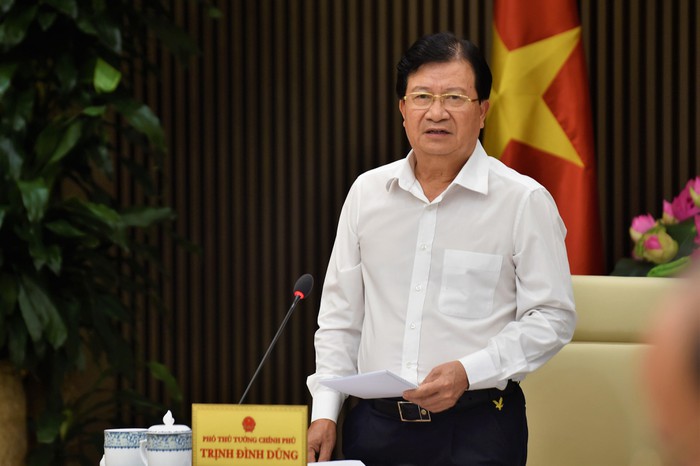Gov’t to craft national master planning for 2021-2030
VGP – Deputy PM Trinh Dinh Dung presided over a meeting of the National Planning Council to discuss a plan to craft the National Master Planning for the 2021-2030 period with a vision towards 2050.
 |
|
Deputy PM Trinh Dinh Dung at the meeting, Ha Noi, June 13, 2019 - Photo: VGP/Nhat Bac |
Under the Planning Law, a national master planning forges a basis for the planning of national maritime spatial planning, national sectorial planning, regional planning, provincial planning, special administrative-economic unit planning, urban planning and rural planning nationwide.
National master planning is a new and complicate field which affects national defense and security and requires united direction of the Government. Hence, the PM decided to establish the national planning council led by Deputy PM Trinh Dinh Dung.
The council comprises ministerial and sectorial leaders in which the Ministry of Planning and Investment (MoPI) is the permanent office, responsible for researching and composing plans to craft the national master planning.
Addressing the event, Deputy PM Dung highly spoke of the preparatory work of the MoPI.
Finalizing national master planning in 2019
Deputy PM Dung said that the Planning Law was introduced in 2017. The PM has issued a series of documents to put the law into practice. Hence, the Government leader asked the council to take drastic step to fulfill its mission and enforce the law.
However, the Deputy PM assigned the MoPI to work with relevant ministries, agencies, and localities to craft the national master planning and submit it to the Government this December.
The national master planning is a new, complicated, and big type of planning with strategic requirements for national development.
He proposed domestic consultants especially the MoPI’s Development Strategy Institute. However, the Deputy PM also stressed the important of inviting foreign consultants on sectorial and field planning which Viet Nam does not have experience.
In addition, the Deputy PM underlined the necessity to prioritize similarities in socio-economic conditions in favor of investment policies and support difficult regions, areas, provinces and cities to boost connectivity./.
By Kim Loan
